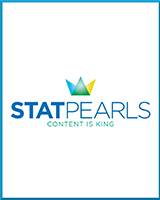This book is distributed under the terms of the Creative Commons Attribution-NonCommercial-NoDerivatives 4.0 International (CC BY-NC-ND 4.0) ( http://creativecommons.org/licenses/by-nc-nd/4.0/ ), which permits others to distribute the work, provided that the article is not altered or used commercially. You are not required to obtain permission to distribute this article, provided that you credit the author and journal.
NCBI Bookshelf. A service of the National Library of Medicine, National Institutes of Health.
StatPearls [Internet]. Treasure Island (FL): StatPearls Publishing; 2024 Jan-.

StatPearls [Internet].
Show detailsDefinition/Introduction
Ethics are inherent in the practice of medicine. In modern healthcare, informatics plays a pivotal role in maintaining and delivering care.[1] As such, informatics ethics has come into the spotlight over recent years. Like other codes of ethics, informatics offers insight into the recommended ethical guidance of clinicians and other healthcare professionals. Additionally, the informatics code of ethics functions as a gold standard against which the actions of professionals can be compared. Furthermore, the code of informatics ethics offers patients and the general population an established statement of standards that may mold professionals’ actions and behaviors.
Informatics ethics significantly overlap with other codes of ethics developed around social settings. These fundamental principles include:
- Autonomy
- Equality
- Justice
- Beneficence
- Nonmaleficence
- Integrity
Other principles that play essential roles in healthcare include:
- Information privacy
- Security
- Access
- Openness
- Least intrusive alternative
- Legitimate infringement
- Accountability [2]
These ethical principles provide insight into the duties and responsibilities of clinicians, administrators, and other healthcare personnel when dealing with patient-related content. It is worth emphasizing that these principles provide guidance depending on the nature, context, and specific details of individual situations.[3]
Issues of Concern
There are several concerns regarding informatics, its regulations, and ethics:
- Efficiency versus quality care: When viewing decision-making across all layers of healthcare delivery, from initial in-person encounters to data storage and transfer, it is imperative to consider the reason behind each decision
- Patient access to care and data: This has several layers of regulation at the federal, state, and organizational levels.[3]
- End-of-life considerations: With the population trending toward living longer, how might data and information be utilized, handled, protected, or destroyed?
- Often, individuals at end-of-life cannot appreciate the complexity of how their data is treated within the broader healthcare environment and cannot decide how that information should or should not be utilized.[4]
Clinical Significance
Overall, informatics plays a significant role in modern healthcare. The budding field of informatics ethics highlights views that mandate both flexibility and development and recognition of standards for addressing these issues as the field continues to evolve.[5] Data collection, maintenance, usage, and destruction in electronic healthcare records remain a focal point of interest in the ongoing societal debate and regulation.
References
- 1.
- Lipworth W, Mason PH, Kerridge I. Ethics and Epistemology of Big Data. J Bioeth Inq. 2017 Dec;14(4):485-488. [PubMed: 29119459]
- 2.
- Liyanage H, Liaw ST, Di Iorio CT, Kuziemsky C, Schreiber R, Terry AL, de Lusignan S. Building a Privacy, Ethics, and Data Access Framework for Real World Computerised Medical Record System Data: A Delphi Study. Contribution of the Primary Health Care Informatics Working Group. Yearb Med Inform. 2016 Nov 10;(1):138-145. [PMC free article: PMC5171555] [PubMed: 27830242]
- 3.
- Layman E. Health informatics: ethical issues. Health Care Manag (Frederick). 2003 Jan-Mar;22(1):2-15. [PubMed: 12688606]
- 4.
- Goodman KW. Addressing ethical issues in health information technology. Camb Q Healthc Ethics. 2015 Jul;24(3):252-4. [PubMed: 26059951]
- 5.
- Huser V, Cimino JJ. Impending Challenges for the Use of Big Data. Int J Radiat Oncol Biol Phys. 2016 Jul 01;95(3):890-894. [PMC free article: PMC4860172] [PubMed: 26797535]
Disclosure: Dac Teoli declares no relevant financial relationships with ineligible companies.
Disclosure: Sassan Ghassemzadeh declares no relevant financial relationships with ineligible companies.
- Review A repository of codes of ethics and technical standards in health informatics.[Online J Public Health Inform....]Review A repository of codes of ethics and technical standards in health informatics.Authors, Samuel HW, Zaïane OR. Online J Public Health Inform. 2014; 6(2):e189. Epub 2014 Oct 16.
- Health Information Professionals in a Global eHealth World: Ethical and legal arguments for the international certification and accreditation of health information professionals.[Int J Med Inform. 2017]Health Information Professionals in a Global eHealth World: Ethical and legal arguments for the international certification and accreditation of health information professionals.Kluge EW. Int J Med Inform. 2017 Jan; 97:261-265. Epub 2016 Nov 9.
- Review Achieving cultural safety for Australia's First Peoples: a review of the Australian Health Practitioner Regulation Agency-registered health practitioners' Codes of Conduct and Codes of Ethics.[Aust Health Rev. 2021]Review Achieving cultural safety for Australia's First Peoples: a review of the Australian Health Practitioner Regulation Agency-registered health practitioners' Codes of Conduct and Codes of Ethics.Milligan E, West R, Saunders V, Bialocerkowski A, Creedy D, Rowe Minniss F, Hall K, Vervoort S. Aust Health Rev. 2021 Aug; 45(4):398-406.
- Medical Ethics.[StatPearls. 2024]Medical Ethics.Young M, Wagner A. StatPearls. 2024 Jan
- Review A proposal for a code of ethics for nurse practitioners.[J Am Acad Nurse Pract. 2004]Review A proposal for a code of ethics for nurse practitioners.Peterson M, Potter RL. J Am Acad Nurse Pract. 2004 Mar; 16(3):116-24.
- Informatics Ethics - StatPearlsInformatics Ethics - StatPearls
- hisG [Sulfurisphaera tokodaii str. 7]hisG [Sulfurisphaera tokodaii str. 7]Gene ID:1459494Gene
Your browsing activity is empty.
Activity recording is turned off.
See more...